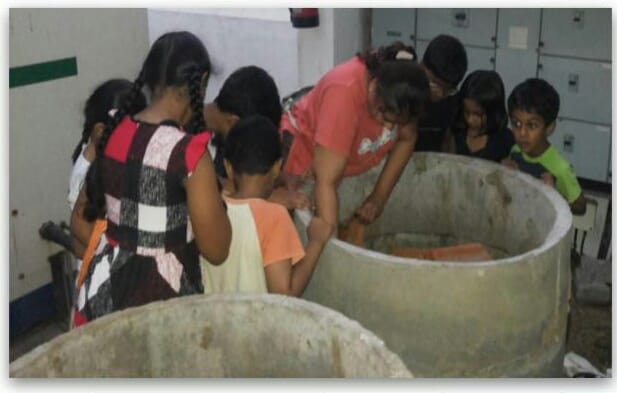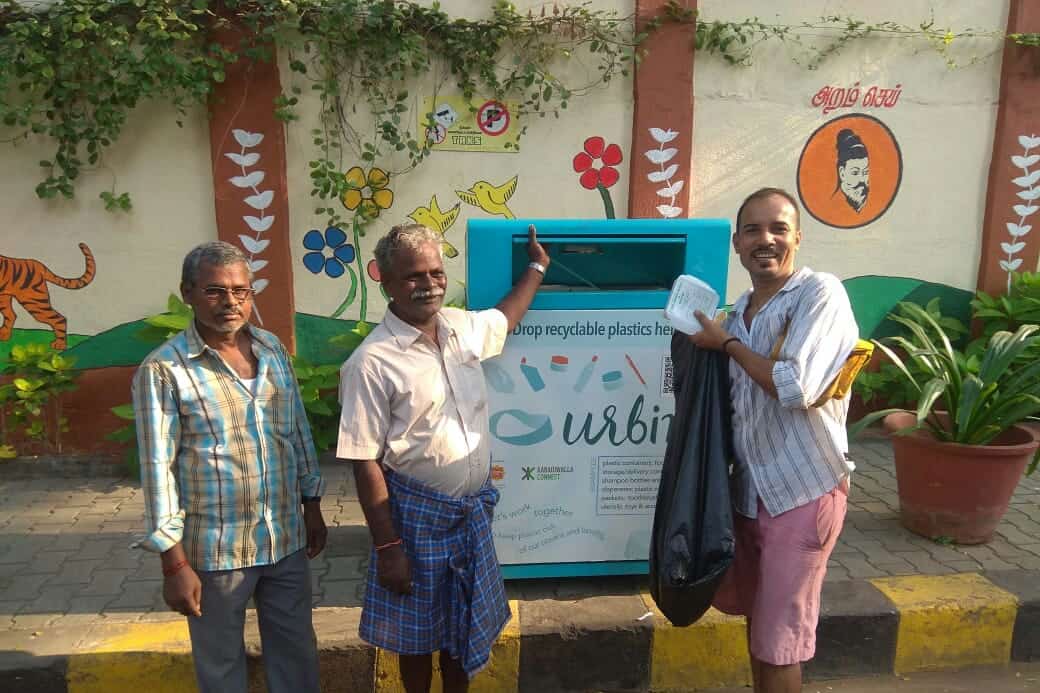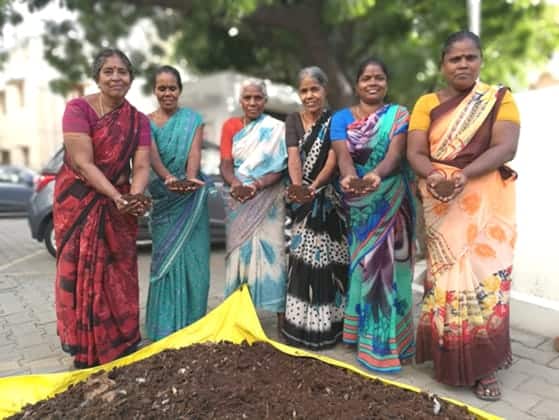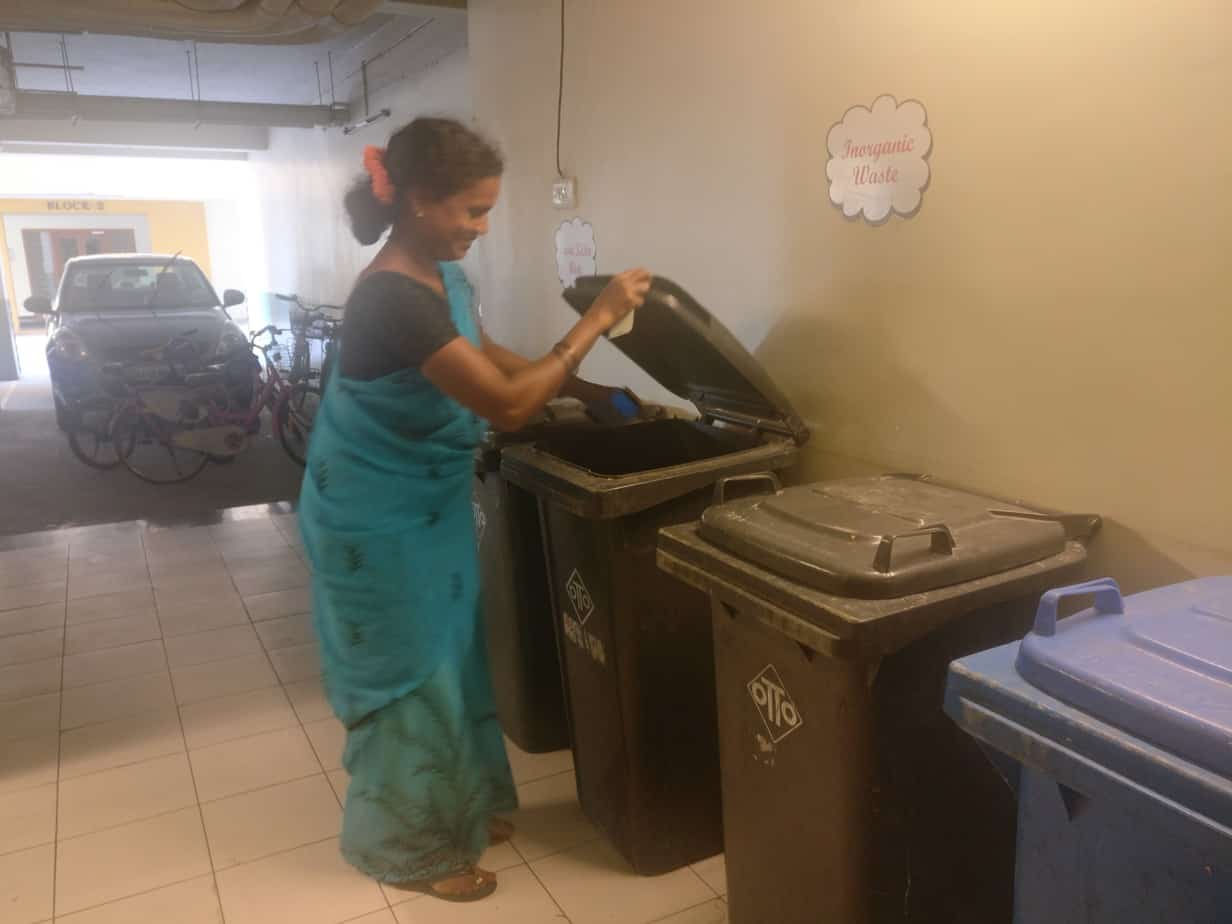At a time when Chennai must make pressing choices for environmental conservation, some residents have set heartening examples to be emulated. In recognition of their efforts, the Tamil Nadu Pollution Control Board (TNPCB) have conferred them with Green Awards. The awards were presented by the Chief Minister to five Resident Welfare Associations in the city for their pioneering efforts in waste management, water and energy conservation and greening.
The winners
Sabari Terrace
Sabari Terrace Apartment Owners Association was one of the five victorious RWAs. The residents here have a successful model of waste segregation, composting and rainwater harvesting. Harsha Koda, a key member of the community said, ” We started this mostly out of desperation. The residents of OMR do not get water and sewage facilities from the authorities. Our various activities have shown that we’ve been ahead of the curve and the authorities are now catching up.”
The community has been segregating waste at source and composting for a few years now. They have also been involved in knowledge sharing efforts with other RWAs in the area keen to embrace the same practices.

Children are actively involved in various composting and segregation efforts at Sabari Terrace. Pic: Harsha Koda
The rainwater harvesting system has brought about savings of around 10-15 lakh litres of water at a time when the city is reeling from severe water scarcity.
The success of the projects have brought about a change in the mindset of people who were initially sceptical. Now the community hopes to spread the message or conservation to other residents of the city by sharing their learnings.
Central Park South
Central Park South in Shollinganallur is another model RWA that has received recognition by the TNPCB. The residents here have undertaken solid waste management, plastic waste management, rainwater harvesting, management and reuse of sewage, green belt development and energy conservation.
The community had made submissions under each of the ten categories listen by the TNPCB. The waste management efforts have been particularly successful with the diversion of close to 80 tons of waste from the landfills. There have been efforts to prevent untreated sewage from leaking out of the system, with the setting up of a state-of-the-art sewage treatment plant and water treatment plant with real time monitoring.
Sumitha, a resident of Central Park, says that the impetus for change came from members of the community who wanted to be environmentally responsible citizens. “We have been taking steps towards different green initiatives. Residents are actively involved and give ideas. We join hands together and work on all these situations. We have been handling whatever challenges came up through the exchange of ideas.”
Another highlight of the community is the sustainable library and games room. The needs of these spaces were met entirely through recycling of materials used by the residents. For instance, the cushions and seating were fashioned from discarded mattresses with covers being made out of old curtains donated by the residents.
Ceebros Boulevard
Ceebros Boulevard has been leading efforts in reduction of waste sent to the landfill through a novel DIY waste management system evolved by the residents. The community has led these efforts over the past four years, with the initial decision having been made in August of 2015.
The residents adopted the segregation efforts after extensive awareness campaigns. A green brigade was formed to spread the message on each floor. New residents were provided with welcome kits. The kits contained a template for segregation.
A green space has been created within the apartment premises where residents can drop off the segregated waste. Wet waste is collected and sent to the corporation compost yards while dry waste is picked up by a kabadiwala twice a week.
The apartment complex has also undertaken supplementary efforts such as the phasing out of plastics and the move to adopt eco-friendly alternatives for all events held in the premises. Children are also roped in through competitions that encourage them to learn about sustainable living.
Also read: A green guide for RWAs striving to build sustainable apartment communities
TAKSRA
The Thiruveedhi Amman Koil Street Residents Association or TAKSRA is a unique winner among the chosen five. Unlike others, the community is not confined to an apartment complex but is comprised of 80 households, both individual and apartments, on a single street.
The thrust of the efforts of TAKSRA has been the creation of a completely sustainable living model. To this end, the members are engaged in waste segregation, composting, drip irrigation and grey water recycling.

Waste segregation takes places on a large scale by the individual houses and flats part of TAKSRA. Pic: KL Bala
Bala KL of TAKSRA said, “The initial trigger for us was to create a clean and livable environment for the residents. Through sustained efforts, we have been able to create various projects. Now we are engaged in knowledge sharing with other streets of RK Nagar and plan events such as inter-street competitions.”
The success of the efforts has spurred residents to undertake more projects. A recharge well has been set up in the community with plans to create a Miyawaki Forest and also implement vehicle free days for pedestrians.
Ramaniyam Eden
Ramaniyam Eden has received recognition for its remarkable success in waste management and community composting. The community efforts were led by three committed individuals in Sripriya Seshadri, S Pragathi and Srividya, supported by the Ramaniyam Eden Flat Owners Association (REFOA).
The SWM segregation efforts were started in February of 2018. Extensive awareness campaigns were held among the residents. The apartment has 120 households participating in the waste management exercise. Door to door campaigns were held among residents and fliers and charts on segregation were distributed.

Compost to the tune of 200kgs has been generated by the Ramaniyam Eden Flats. Pic: Sripriya Seshadri
With the community segregating waste into wet, dry and discards, in-house composting was initiated in April 2018. After three months, the first yield of compost was harvested in June 2018. The apartment complex has produced 160-200 kg of compost.
The community is also involved in the creation of a green belt and rainwater harvesting. Children have been educated and made part of awareness campaigns to spread the message of conservation and reduction of plastic use among their peers.

Very good examples for many complexes to be inspired of.. well documented..